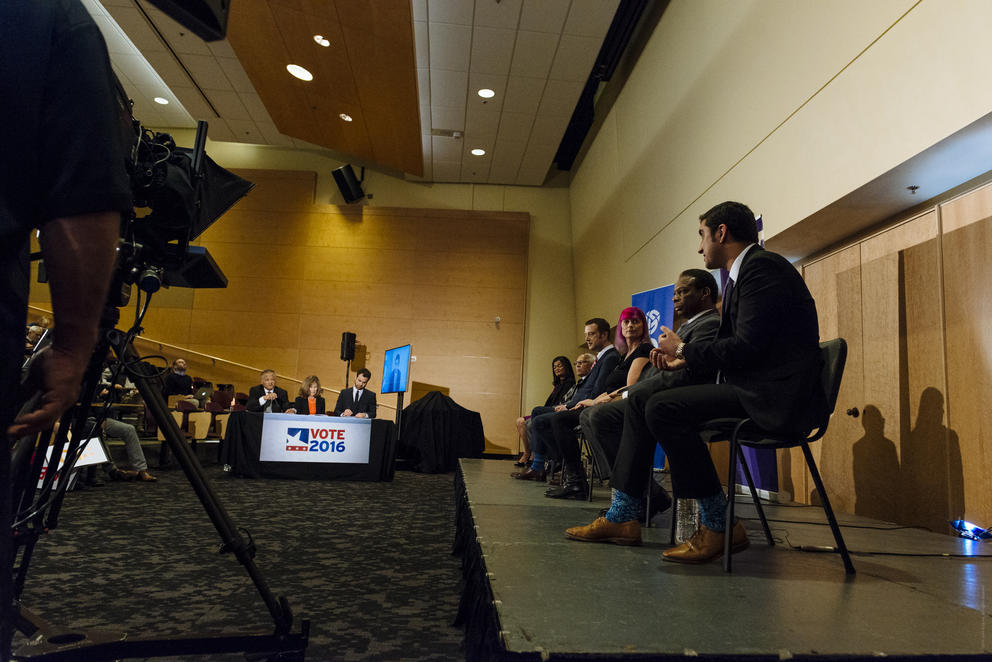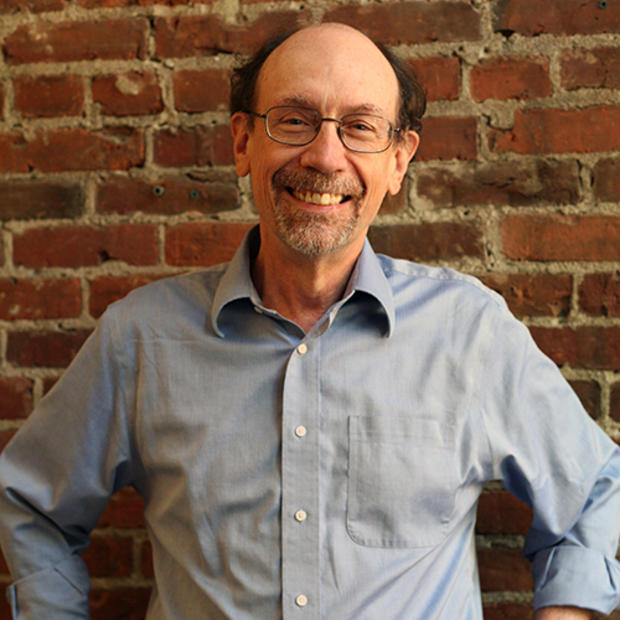In the first televised debate for one of Seattle’s biggest political prizes in a generation, six candidates vying to represent the area in the U.S. House of Representatives attempted to paint themselves as the best choice for the position Wednesday night.
Drawn by the retirement of 28-year Congressmember Jim McDermott, a full slate of nine candidates are seeking to represent the 7th Congressional District, which covers much of the city and some neighboring suburbs to the north and south. Six of the candidates met for a debate hosted by KCTS 9 and Crosscut at University of Washington's Kane Hall.
They face a fast-paced race to the August 2 primary, where the top two vote-getters will emerge as the finalists in the fall general election.
The debate included all three of the most prominently covered office seekers — state Sen. Pramila Jayapal, King County Councilmember Joe McDermott and state Rep. Brady Piñero Walkinshaw — as well former Burien Mayor Arun Jhaveri, independent candidate and engineering specialist Leslie Regier, and community activist Don Rivers. Other than Regier, all of them have filed as Democrats. The three other candidates on the ballot are Republicans Scott Sutherland and Craig Keller and Carl Cooper, an independent.
The 7th District is regarded as one of the nation’s more liberal, and potentially one where a progressive representative could enjoy a lengthy career along the lines of the incumbent, Congress member McDermott (who is no relation to Joe McDermott).
KCTS 9’s Enrique Cerna moderated the debate, posing questions with veteran journalist Joni Balter and Crosscut's managing editor Drew Atkins.
The candidates generally tried to outdo each other in positioning themselves as the best representative for a progressive district, but also as people willing to collaborate. Late in the debate, they were asked to talk about their most conservative belief, a question that drew a laugh from the audience.
Jayapal, the first to answer that question, responded, "God, it is going stump me." She went on to talk about her positions and her desire to represent working people, drawing more laughs when she concluded by saying that she hadn't answered the question but had used it to state her own progressive priorities.
Jhaveri talked about his support for balancing the federal budget. McDermott said, "Maybe the most conservative thing I’m willing to do is to talk to conservatives … and work with them.” Walkinshaw, who graduated from Nooksack Valley High School in Whatcom County, said, "Maybe the most conservative thing I did was to grow up in a place that was deeply, deeply conservative.”
But there were plenty of highlights as the candidates fielded a range of issues.
- McDermott called for all the candidates to “agree to a people’s pledge to … agree to denounce outside independent expenditures.” He said that if a Democratic Congress is elected, the priority should be campaign finance reform and overturning the Citizens United ruling that overturned earlier controls.
- Jayapal pointed to immigration reform as an issue that a Democratic Congress should address immediately. "We have the bill and it is ready to go. We just need the Speaker to bring it to the floor.”
- Walkinshaw: “The first piece of legislation that I would bring forward would be a federal carbon tax. I think that climate change is the most pressing issue that our generation faces.”
- Asked about long lines to get through security at Seattle-Tacoma International Airport, every candidate expressed support for maintaining reliance on federal TSA employees rather than adding private contractors.
- Jhaveri, a physicist and former Boeing engineer who is emphasizing science in his campaign, said the smart gun technology can be used to keep guns out of the hands of both the mentally ill and those who want to engage in domestic violence.
- Rivers said he would work to have Congress address the Black Lives Matter concerns “and make sure that we know that all lives are important but work on it in such a way that it will help bring back peace among all of our voters in our nation.”
KCTS 9 will broadcast the debate on June 1 at 7 p.m., and further analysis will be published on Crosscut. The full livestream of the event is below.


